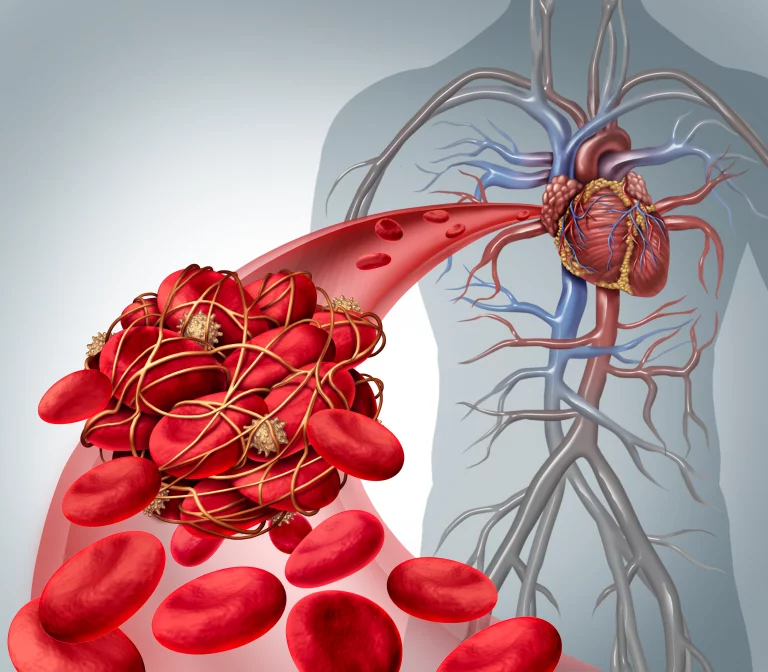Nattokinase - a natural fibrinolytic enzyme

Have you ever heard of nattokinase? If not, you don't have to blame yourself - you're not alone. The enzyme, isolated from traditional Japanese natto food, has several undeniable effects on human health. Netto represents fermented soybeans, which are a delicacy, especially in this part of Asia. With a bit of exaggeration, it is a superfood, which, despite its nutritional value, is largely unknown to the rest of the world. However, isolating the enzyme that carries these benefits and processing it into a compact form allows it to be spread by anyone, regardless of location. And NaMaximum also brings it to the Slovak and Czech market!
Natto is a traditional Japanese dish that has been consumed in the land of the rising sun for several millennia. Fermented soybeans are a great delicacy for the Japanese, despite their characteristic odour, because they know very well what a healthy delicacy it is. The carrier of its positive effect on human health is the enzyme nattokinase, which is obtained by adding bacteria of the species Bacillus subtilis to cooked soybeans. The bacterium then attempts to digest the beans by releasing said enzyme, which, in simple terms, is "taken up" and subsequently further processed for other purposes. And why is nattocinase so special?
NATTO REGULATES BLOOD COATING
Today's times and high working demands are a relatively big challenge for human health. A sedentary lifestyle, frequent eating in fast foods, sitting in front of the TV and a general lack of exercise. Add to that a more or less regular consumption of alcoholic beverages and smoking a single box of cigarettes a day. The final account under all these items represents a quality onset of a heart attack, which is not exceptional either for the current generation of people in their twenties or thirties, let alone the elderly. Overall, if we look at cardiovascular disease, we can literally talk about an epidemic - every year, so many people die from some of these diseases that it is the most common cause of death. But all these conclusions have something in common - increased formation of blood clots (thrombi), which like a silent killer flows through the body, and if they find a fitting (understand narrow) vessel, they clog it and the rest is a well-known story.
People after a heart attack whose blood vessels are more narrowed than it is still acceptable are under the influence of all well-known risk factors and therefore must take medicines to save their lives, to keep the blood in a consistency that will not lead to the formation of clots. However, these drugs also have a number of side effects that do not need to be discussed for the purposes of this article. It is enough to know that they exist and that there are people in the world who have been bothered enough by this fact to try to find a proper alternative for them. It is perhaps not surprising that the Japanese were the first to succeed, specifically in 1980 by Dr. Hiroyuki Sumi of the Chicago School of Medicine, who found that nattokinase has the same effects as the most well-known anticoagulants, plus no side effects [1, 2]:
- helps to dissolve a substance called fibrin in the blood vessels, which is one of the main components of a blood clot
- raises HDL ("good") cholesterol and helps keep cholesterol levels normal
- reduces the viscosity of the blood, thus contributing to the proper functioning of the bloodstream
- does not irritate the digestive tract compared to commonly available drugs and is fully absorbable and digestible without problems [3]
REDUCES BLOOD PRESSURE
Like the tendency to increase blood clotting, high blood pressure unquestionably contributes to the growing incidence of various cardiovascular diseases. If you randomly stop 10 people on the street, you can bet your life that at least half of them will take at least one (if not two, three or even four) of the whole spectrum of drugs intended for the treatment of so-called arterial hypertension. These, like other medicines, undoubtedly have a large number of side effects. The good news, however, is that even in this case, nattokinase has proven to be a suitable natural alternative in many studies [4].
MAINTAINS RESPIRATORY TRACT IN GOOD CONDITION
Nattokinase is currently also referred to as the so-called mucolytic substance, which means that it dissolves mucus, in this case the one found in the nose or better said, even in the whole respiratory tract [5]. The long-term occurrence of mucus in the airways is a breeding ground for a wide range of foreign microorganisms (pathogens), leading to runny nose, cough or airway inflammation. The recurrence of airway inflammation increases the risk of so-called nasal polyps that clog the airways and make breathing difficult. Moreover, it has been shown that regular intake of nattokinase can effectively prevent the development of chronic obstructive pulmonary disease, bronchitis or sinuses. By dissolving the mucus, it is easier to remove from the airways, thus keeping the airways in good condition.
As you can see, there are several reasons for regular consumption of nattocinase today, and research in this area is still ongoing. You may be wondering whether a healthy lifestyle or the characteristics and abilities of our body are not enough in order to avoid the above-mentioned problem. Of course, to say that it is impossible would be a blatant lie. On the other hand, we can argue with well-known scientific facts, for example, that the production of a single body of its own enzyme - plasmin - which contributes to the natural dilution of blood, decreases with age. To make matters worse, the production of fibrinogen, an enzyme which, in turn, increases the tendency for the blood to clot, rises with age. Regular use of nattokinase can thus be considered a form of effective and especially natural prevention. Moreover, if you already have experience with serrapeptase, know that in this case it is a preparation even a few levels better. And it's worth it, isn't it?
SOURCES
Hsia, C., Shen, M., Lin, J., Wen, Y., Hwang, K., Cham, T. and Yang, N. (2020). Nattokinase decreases plasma levels of fibrinogen, factor VII, and factor VIII in human subjects.
Weng, Yunqi et al. “Nattokinase: An Oral Antithrombotic Agent for the Prevention of Cardiovascular Disease.” International journal of molecular sciences vol. 18,3 523. 28 Feb. 2017, doi:10.3390/ijms18030523
Fujita, Manabu et al. “Transport of nattokinase across the rat intestinal tract.” Biological & pharmaceutical bulletin 18 9 (1995): 1194-6 .
Jensen, Gitte S et al. “Consumption of nattokinase is associated with reduced blood pressure and von Willebrand factor, a cardiovascular risk marker: results from a randomized, double-blind, placebo-controlled, multicenter North American clinical trial.” Integrated blood pressure control vol. 9 95-104. 13 Oct. 2016, doi:10.2147/IBPC.S99553
Takabayashi T, Imoto Y, Sakashita M, et al. Nattokinase, profibrinolytic enzyme, effectively shrinks the nasal polyp tissue and decreases viscosity of mucus. Allergol Int. 2017;66(4):594–602. doi:10.1016/j.alit.2017.03.007



